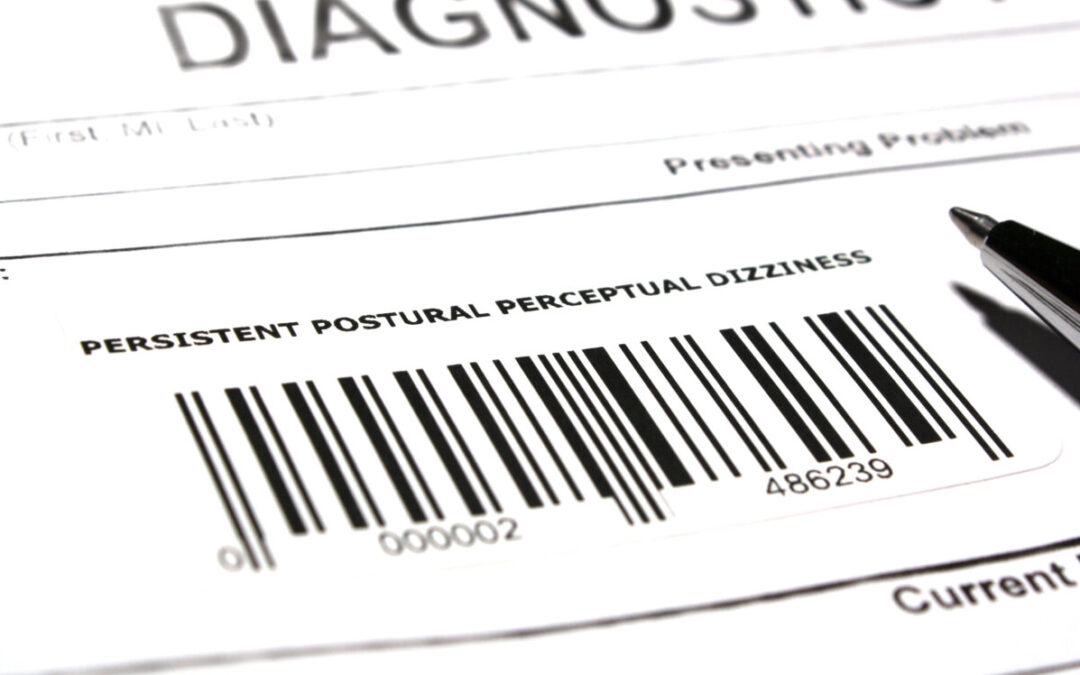Have you ever felt off-balance, dizzy, or just not steady on your feet for weeks or even months? If so, you might have heard about Persistent Postural-Perceptual Dizziness (PPPD or 3PD). It’s a common cause of long-lasting dizziness, but it’s not caused by structural damage or a psychiatric disorder. Instead, it’s a condition where the brain gets stuck in a pattern of processing balance signals incorrectly, even after the original issue clears up.
Let’s break it down in a way that’s easy to follow.
What Does PPPD Feel Like?
Symptoms:
- Non-spinning dizziness: It’s not like the room is spinning (like vertigo) but more of a constant lightheaded or unsteady feeling.
- Worse in certain situations: Standing, walking, or being in visually overwhelming places—like a crowded mall or a busy street—can make the symptoms worse.
Behavioral signs:
- People with PPPD often move cautiously, almost as if they’re trying to avoid triggering the dizziness.
Physical findings:
- Tests and scans usually come back normal. Sometimes, you might see leftover signs from the event that triggered the dizziness, like a past inner ear issue.
What Can Trigger PPPD?
PPPD usually starts after something throws off your balance system, such as:
- Vestibular issues (about 70% of cases): Conditions like an inner ear infection (vestibular neuritis), BPPV (those dizzy spells caused by loose crystals in your ear), vestibular migraines, etc.
- Stress or mental health challenges (about 30% of cases): Anxiety or depression can play a role in setting the stage for PPPD.
Who Gets PPPD?
- Age: Most people diagnosed are in their 40s or 50s, but it can happen to anyone, from teens to seniors.
- Gender: It’s more common in women.
- Risk factors: A personal or family history of anxiety increases the chances of developing PPPD.
Why Does PPPD Happen?
The exact cause isn’t fully understood, but the current understanding is that your brain’s balance system becomes extra sensitive and stuck in overdrive. Even after the initial problem is gone (like an inner ear issue or a stressful event), the brain doesn’t reset properly. Think of it as your balance system’s “alarm” staying on, even though the danger has passed.
Background History
Even though the term PPPD only became official in 2017, doctors have been describing this condition for over a century. Back in the 1800s, German doctors noticed patients with dizziness triggered by open spaces, busy places, or anxiety. They called it things like:
- “Platzschwindel” (plaza dizziness)
- “Platzangst” (fear of plazas)
- “Agoraphobia” (fear of marketplaces)
Since then, it’s been called many names, like “chronic subjective dizziness” or “visual vertigo.” The name PPPD helps tie all these ideas together under one clear diagnosis.
How Common Is PPPD?
It’s more widespread than most people realize:
- Primary care clinics: About 14% of people with dizziness have PPPD.
- Neurology clinics: That number jumps to 20%.
- Specialized dizziness centres: Over half of patients with chronic dizziness seen in specialty clinics meet the criteria for PPPD.
How Is PPPD Treated?
The good news? PPPD is treatable. The key is using a mix of approaches to help the brain recalibrate.
- Get moving again:
- Gradually reintroduce activities that trigger symptoms to help retrain your balance system.
- Avoid falling into a “fear of movement” trap.
- Vestibular rehabilitation therapy (VRT):
- Tailored exercises can help reduce dizziness and sensitivity to motion or busy environments.
- Support mental health:
- Cognitive Behavioral Therapy (CBT) can address unhelpful thought patterns that make symptoms worse.
- Medication (if needed):
- Sometimes, antidepressants like SSRIs are prescribed to calm the nervous system.
- Education and reassurance:
- Understanding that PPPD is a functional condition (not a sign of permanent damage) can empower you to take steps toward recovery.
The key is realizing that any change will take time, so patience and a multidisciplinary approach are vital.
Final Thoughts
Living with PPPD can be frustrating, but you’re not alone and there’s hope. With the right combination of therapy, support, and patience, many people experience gradual improvements.
If you’ve been dealing with chronic dizziness and aren’t sure why, talk to a healthcare provider who specializes in dizziness and balance. They can help figure out if PPPD is the cause and guide you toward a personalized treatment plan.
If you are a resident in Saskatchewan feel free to contact us at North 49 or book a Vestibular Assessment through our online booking platform.
Taking small steps can make a big difference in getting your balance and your life back on track.

